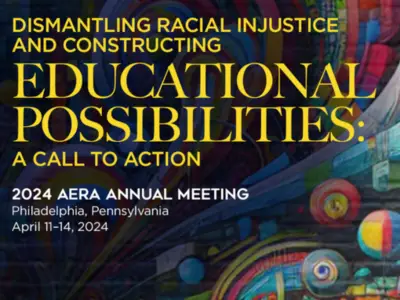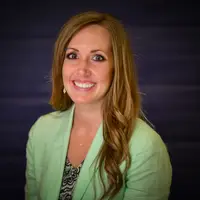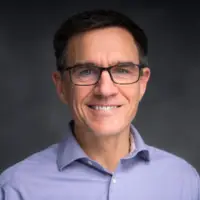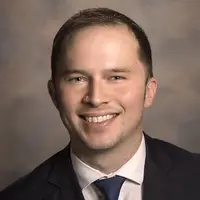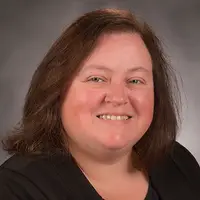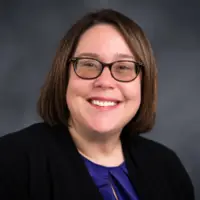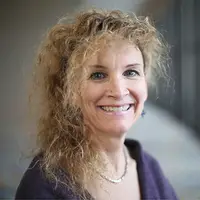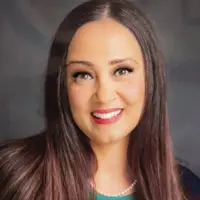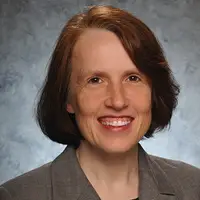AERA 2024 Annual Meeting
Date
Location
Pennsylvania Convention Center
Philadelphia, PA 19107
United States
Join our team in Philadelphia at the American Educational Research Association’s (AERA) 2024 Annual Meeting—the world's largest gathering of education researchers and a showcase for groundbreaking, innovative studies. This year, we are excited to collaborate with other researchers, practitioners, and policymakers to boldly imagine how education spaces can look if free of racial injustice.
AERA is a national research society focused on advancing knowledge about education, encouraging scholarly inquiry related to education, and promoting the use of research to improve education and serve the public good.
Continue reading for more on our presentations.
RTI Presentations
Putting culture at the center: mentor’s views of programmatic impact in rural Alaska
April 11 | 10:50 AM – 12:20 PM
Presenters: Katherine McKnight, Cheyane Mitchell, Laura D. Carsten Conner (University of Alaska - Fairbanks), Keiko A. Herrick (University of Alaska - Fairbanks), Glenda Findlay (University of Alaska - Fairbanks), Janice Littlebear (University of Alaska - Fairbanks), Susan McIntosh (University of Alaska)
Description: Mentoring of early career teachers (ECTs) is an evidence-based approach that supports teacher retention, strong instructional practices, and student achievement. However, there remains an acute need to understand the contextual factors that influence such programs, especially given the fact that teachers in the U.S. often do not come from the same cultural background as their students. Using a mixed methods approach, we investigated which elements of an existing mentoring program were most salient in supporting ECTs. Our findings suggest that the culturally responsive, community-oriented focus of the mentoring model, along with multi-layered support for mentors and trusting relationships with mentees, were the factors most responsible for building self-efficacy and retention among ECTs. We discuss the implications below.
STEM Consortium as a Model to Improve Diversity of STEM Workforce
April 11 | 12:40 PM – 2:10 PM
Presenters: Rebecca Stanley, Whitney White, Jennifer Preston, Melinda Griffin (American Institutes for Research)
Description: The need for a highly skilled STEM workforce is rapidly growing, with an anticipated 11,100,000 Americans employed in STEM careers by 2031 (Krutsch & Roderick, 2022). To keep up with the demands of attracting and retaining skilled STEM professionals, the Department of Defense (DoD), in collaboration with academic, industry, not-for-profit, and government organizations, developed the Defense STEM Education Consortium (DSEC). DSEC focuses on serving students who are underrepresented in STEM through intentional, collaborative development of STEM ecosystems across federal programs. This paper analyzes the DSEC consortium model as a prototype for agencies to develop opportunities for collaboration and growth of the STEM career pipeline, with more opportunities for students pursuing STEM careers and less competition for scarce resources.
The Impact of Teacher Beliefs on Student Comprehension, Self-Efficacy, and Metacognitive Strategy Use
April 11 | 12:40 PM – 2:10 PM
Presenters: Willow Alston-Socha (for North Carolina State University PhD Program), John L. Nietfeld (North Carolina State University)
Description: This post hoc study explores the impact of teacher beliefs on student performance in the Improving Reading Comprehension using Metacognitive Strategies (IRCMS) program. The program aimed to enhance reading comprehension through metacognitive strategies for 3rd to 5th-grade students, accompanied by teacher training and practice activities. The study examines the relationships between teacher beliefs, student self-efficacy, reading comprehension, and metacognitive strategy use. Findings reveal that transactional reading beliefs positively predict student comprehension gains and metacognitive strategy use. Teacher efficacy for teaching reading is crucial for changes in student self-efficacy, especially for IRCMS-trained teachers. Understanding teacher beliefs can influence effective literacy instruction and professional development, fostering educational equity.
Supporting and Scaling School Innovations: Learnings from National Research
April 11 | 12:40 PM – 2:10 PM
Presenters: Jill Pierce, Gina Arnone (Research for Action), Siettah Parks (Teachers College, Columbia University), Maja Pehrson (Research for Action)
Description: The findings presented in this paper draw from a national study of districts and nonprofits that have received attention for their efforts to foster and support innovation. The research examines what school innovation is, how it can be supported by leaders of districts, partnering organizations, and schools, and how innovative approaches to teaching and learning can be shared and scaled. Analyses highlight many crosscutting findings related to critical components of innovation; system-level supports for innovation; and considerations related to sharing and scaling promising innovative practices. These findings can help school and school-system leaders make data-informed decisions to define, support, share, and scale innovative teaching and learning practices that facilitate equitable learning experiences for young people.
When We Know Better, We Do Better: Black Urban Teachers’ Storied Experiences
April 11 | 4:20PM – 5:50 PM
Presenters: Jill Pierce, Lynnette K. Mawhinney (Rutgers University - Newark), Leana Cabral (Teachers College, Columbia University)
Description: This paper reports on racial microaggressions experienced by Black teachers (current and former) within the School District of Philadelphia. We share findings based on interviews and focus groups with 30 educators around the racial composition of schools and neighborhoods most frequently associated with racial microinvalidations and microinsults, as well as themes around factors that help to retain and sustain Black teachers. Recommendations are drawn from the expertise of participants who shared their storied experiences with researchers in the hopes of systemic changes that will do better by Black teachers and other educators of color, honoring their deep expertise and sustaining them at this critical time characterized by racially disproportionate attrition within the field.
Transforming Teaching with Transdisciplinary Project-based Learning: Implementation and Impact of a Space-related Professional Development Program
April 12 | 9:35 AM – 11:05 AM
Presenters: Yihua Hong, Frank McKay, Jon Boyette, Kristana Rogers
Description: This study examines the implementation and impact of STARward STEM, a space-related professional development (PD) program currently implemented in a large school district in North Carolina. Using a mixed method design, we explore the experience of 36 teachers who participated in the Cohort 1 study of STARward STEM. The study results suggest a high-level program implementation. The program was found to be associated with a significant improvement in teachers’ reports of their PBL instructional practices.
Merging High School and College: How Early College High Schools Are Changing Our Educational Systems
April 13 | 11:25 AM – 12:55 PM
Presenters: Elizabeth Glennie, Frank McKay, Julie A. Edmunds (University of North Carolina - Greensboro), Nina Arshavsky (University of North Carolina - Greensboro), Tanya Smith (Duplin Early College High School)
Description: The early college high school model—which allows students to simultaneously earn a high school diploma and an associate degree or two years of college credits—is serving as a test case of whether our secondary and postsecondary systems should be separated (as they currently are) or if they can be combined. This session provides an overview of the model, shares rigorous research about its effectiveness, and explores what it would take to scale up this model. A panel including policymakers and practitioners will highlight the implications of the ECHS, considering how this model might change our educational structures in order to benefit students traditionally underrepresented in college.
Innovation or Insulation?: Authorship Networks for Student Loan News Articles and Discussions of Race and Racism
April 13 | 7:45 AM – 9:15 AM
Presenters: Chris Bennett, Dominique Baker (University of Delaware), Jaime Ramirez-Mendoza (University of California - Davis), Lauren M. Shook (University of Texas at Austin)
Description: One of the key areas of the policy ecosystem that helps to shape policymakers’ and the public’s understanding of student loans is the news media. Prior research emphasizes the causal impact of the media on the social construction of policy issues and the lack of knowledge about the authors of student loan articles. Therefore, we used social network analysis to investigate the colleges of authors for articles published in 8 newspapers from 2006 to 2021. We found evidence of a stark status hierarchy among the colleges attended (over half the authors attended an Ivy Plus or Public Flagship institution) and of a negative relationship between that hierarchy and use of racialized language in student loan news articles.
Engaging Newcomer Families: Youth-Suggested Approached
April 14 | 9:35 AM – 11:05 AM
Presenter: Kristen McInerney
Description: This study focuses on the engagement of immigrant students who have recently arrived in the United States—or newcomers—and their families. In a descriptive case study, utilizing a large administration of a survey and interviews, 405 adolescent students who had recently arrived in the United States shared experiences that led to a sense of belonging in their large urban high school. This study details how family separation and reunification, financial responsibilities, value of education, and pride impact school family engagement efforts. Study outcomes include student-proposed best practices for family engagement and innovative solutions for educators, including strategies to include families in home countries and to support the wellbeing of newly arrived students and families.
